I noticed the NRS knives after a recent browse through the Rapid Kayaks website . They looked like they might be suitable for kayak fishing. There were a few different models. The Pilot series had longer blades and a rope cutter and glass breaker, the co-pilot series were shorter and lacked the rope cutter and glass breaker. I will be taking an initial look at the NRS co-pilot knife.
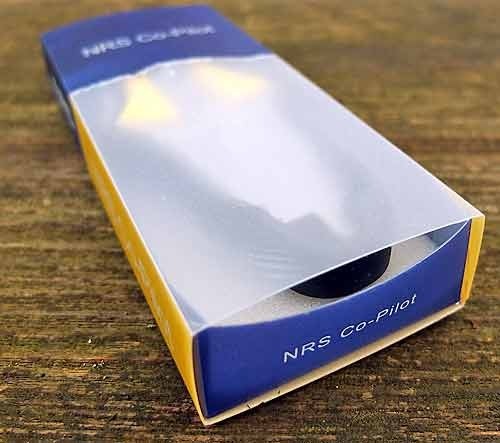
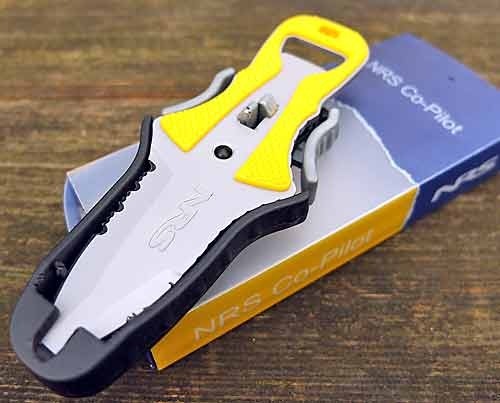
The usual blurb/specs on the packaging…
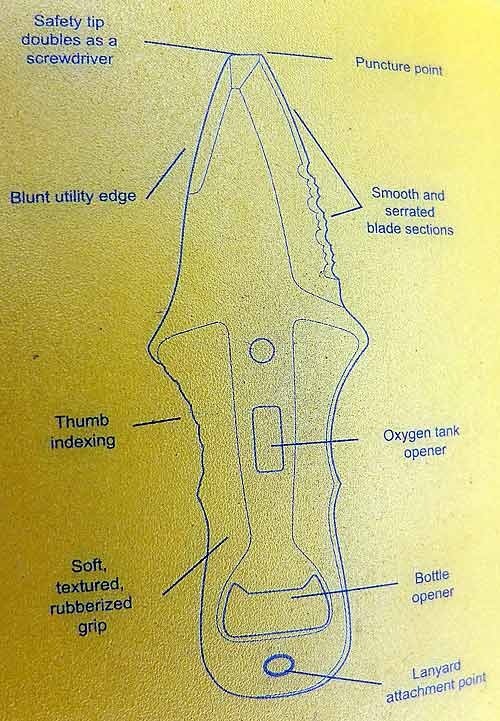
The knife is securely held in the sheath. The release mechanism is simple, but clever. By squeezing both release lugs at the same time, the blade can be released with one hand. I have had PFD knives in the past which have been either to easy to release (and lose !!) or too difficult to release; so this was encouraging.
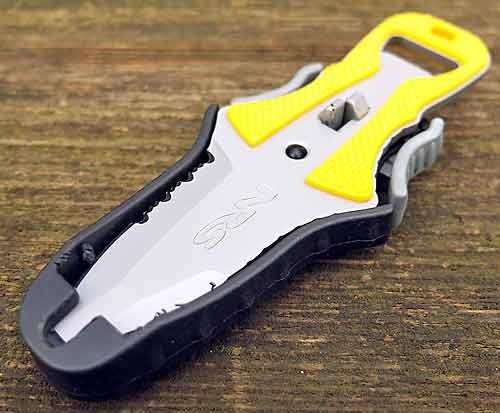
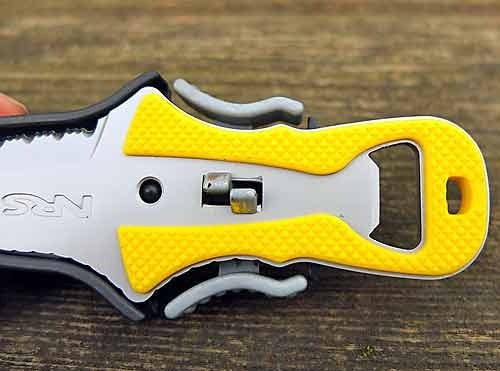
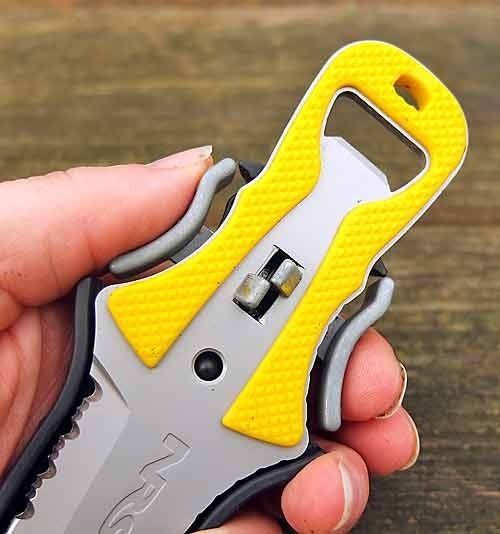
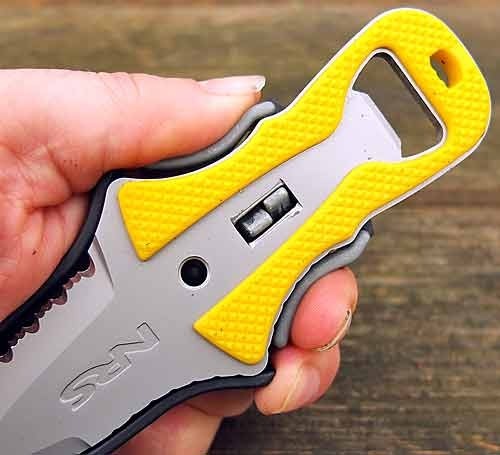
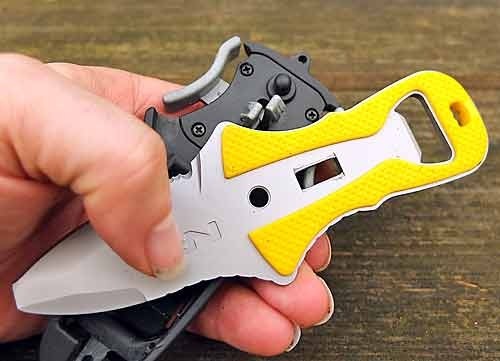
The locking mechanism itself is enclosed within the sheath; the internal components will be subjected to immersion – so as always, only the long term test will prove if corrosion is an issue.
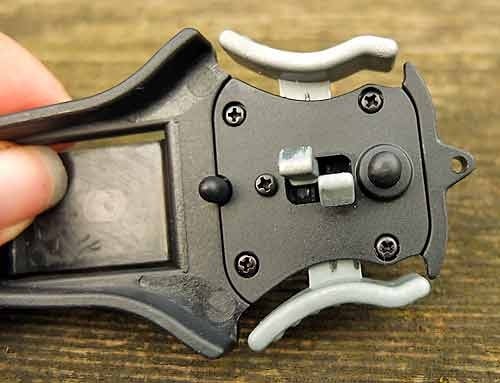
The design of the knife is such that the handle is just an extension of the blade – I liked the one-piece design. Its strong, and the way the handle is designed, means that it sits flat on the PFD and does not stick out. The knife has a blunt blade which is thicker/wider than other PFD knives I have seen.
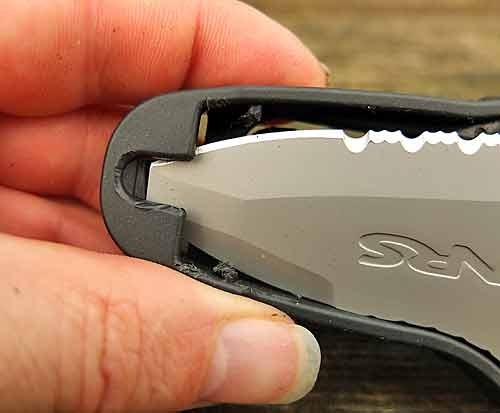
The blade itself is slight unusual, in that one edge is blunt/thick and only one side is sharp. The idea is that the blunt side is to be used as a utility blade. There are grooves on the blunt side which you can feel with your thumb when holding the knife, so you know which side is sharp…
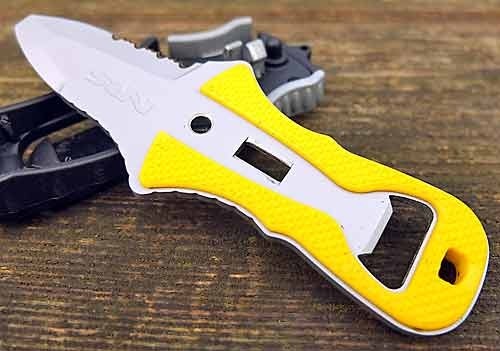
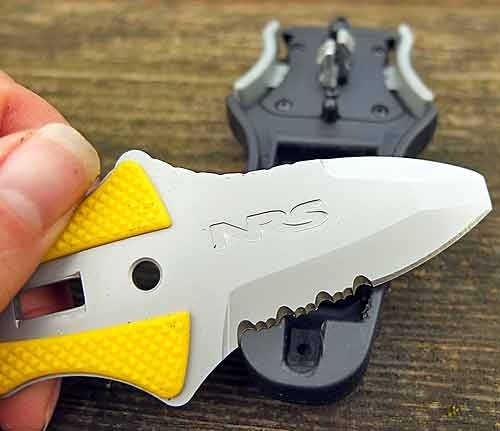
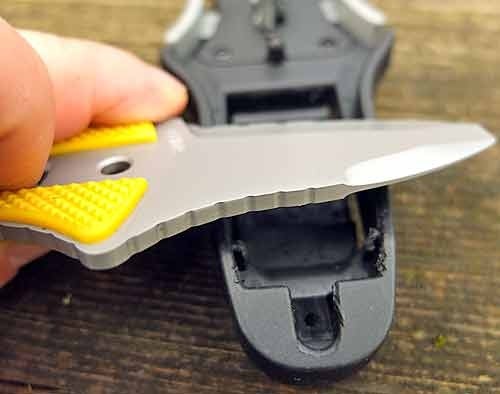
Personally, I would like to have seen a double edged blade for use in an emergency – then you always know you are cutting with the correct edge.
The sharp edge of the NRS co-pilot is good. Its consists of a smooth sharp blade towards the tip, and a serrated edge nearest the handle.
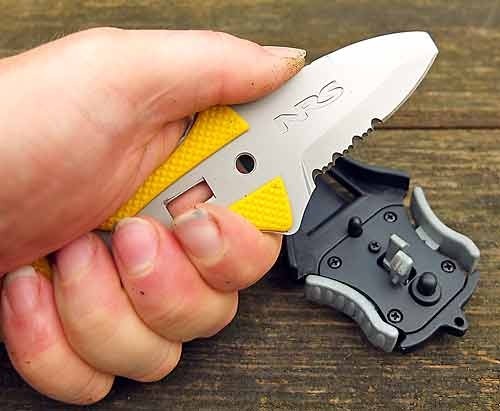
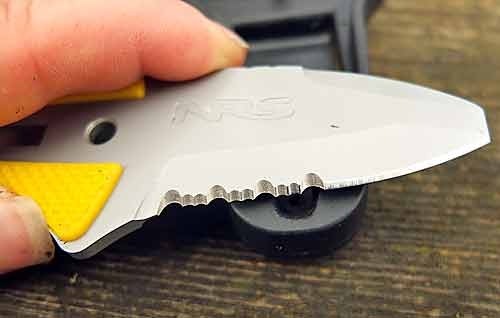
Both parts of the sharp blade performed well – I cut wood, plastic, thick mono and braid with the sharp smooth edge – no problem. Then I decided to test out the serrated edge on some thick paracord…
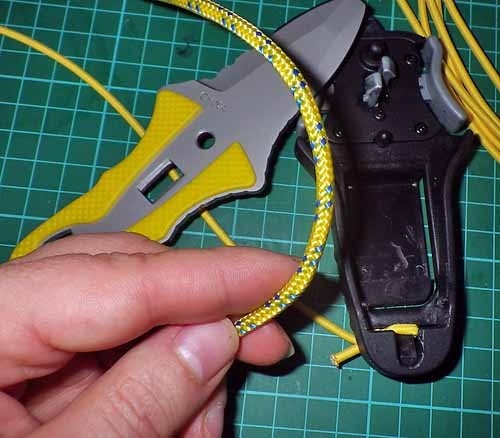
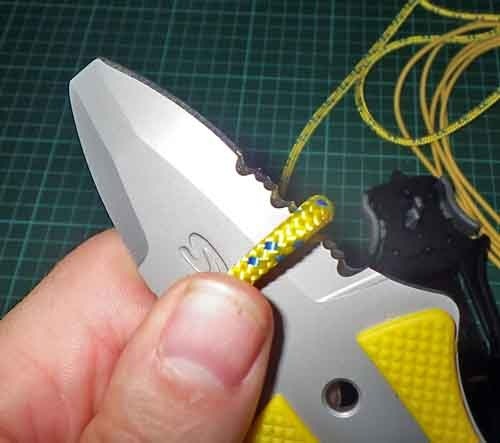
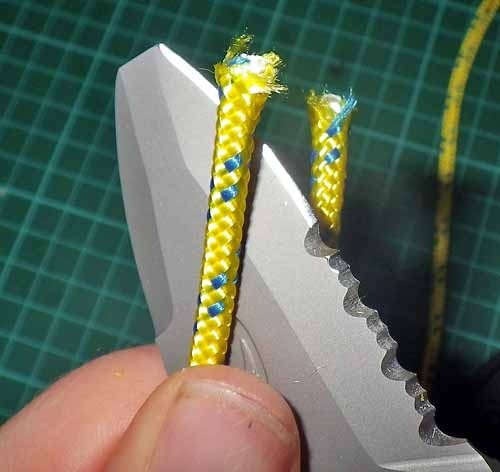
I have to say, I was impressed with the performance of the blade.
On to the handle now… Its covered with a textured rubberised material, which is easy to grip.
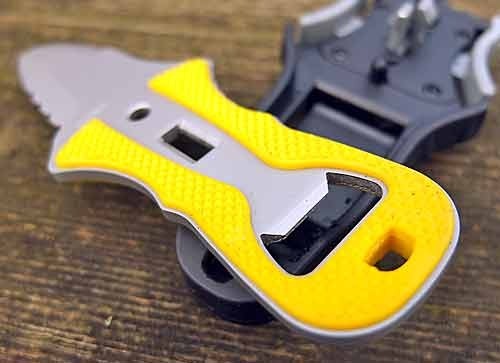
The end of the handle includes a bottle opener, and an attachment for a leash. I made a quick leash from some bungy – the attachment point on the sheath was a bit too small for the diameter bungy I was using, but it was easy enough to find a new attachment point.
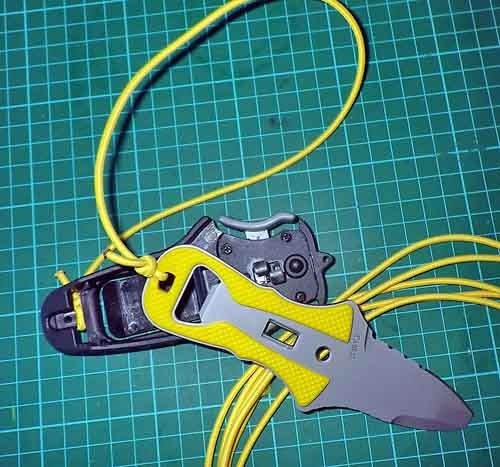
The sheath itself looks strong – and it has a clip on the black which attaches to the ‘square cross’ type attachment on a PFD.
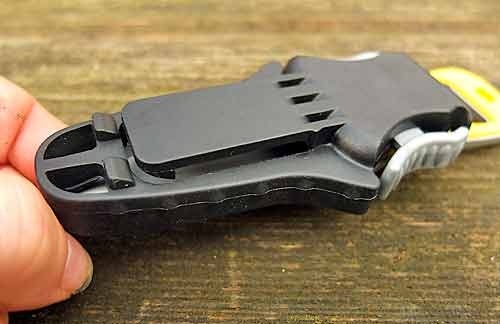
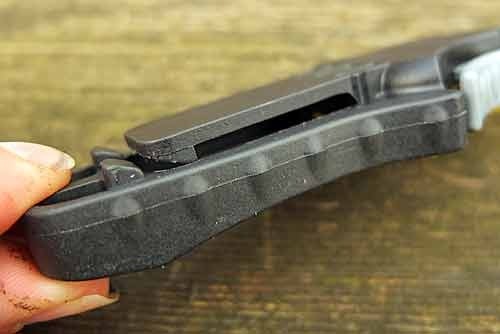
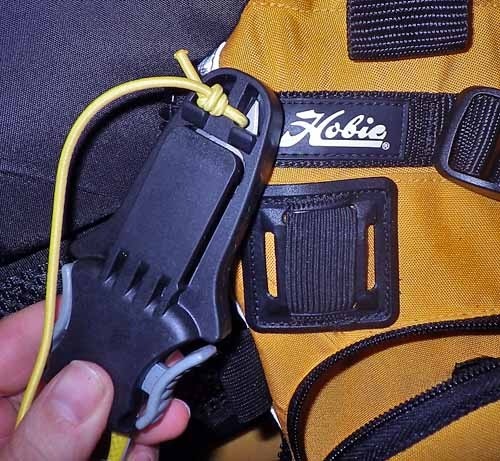
The clip is relatively easy to attach to a PFD, but very difficult to get off ! This is not a criticism; its a good thing, as it means the knife is secure – just bear it in mind if you were thinking of using the knife on multiple PFD’s – its more or less permanent once attached.
These are only my first impressions of the knife, I will be using it over the coming months, and will post a long term test update based on my findings. But based on my initial thoughts, these are my conclusions…
CONS…
A double edged blade would have been better than a single blade
Question mark over saltwater resistance of sheath locking mechanism
PROS…
Positive/secure/reliable one handed release mechanism
Strong/sharp blade with blunt tip
Low profile on PFD
Available in yellow !!!!!
Also worth considering is the NRS Pilot knife – it is bigger, but the blade also includes a rope cutting tool. NRS also make a Titanium version of the knife (more expensive).
The NRS co-pilot knife is available from Rapid Kayaks…
http://www.rapidkayaks.co.uk/nrs-co-pilot-kayak-rescue-knife-blunt-tip-copy-i456.html
